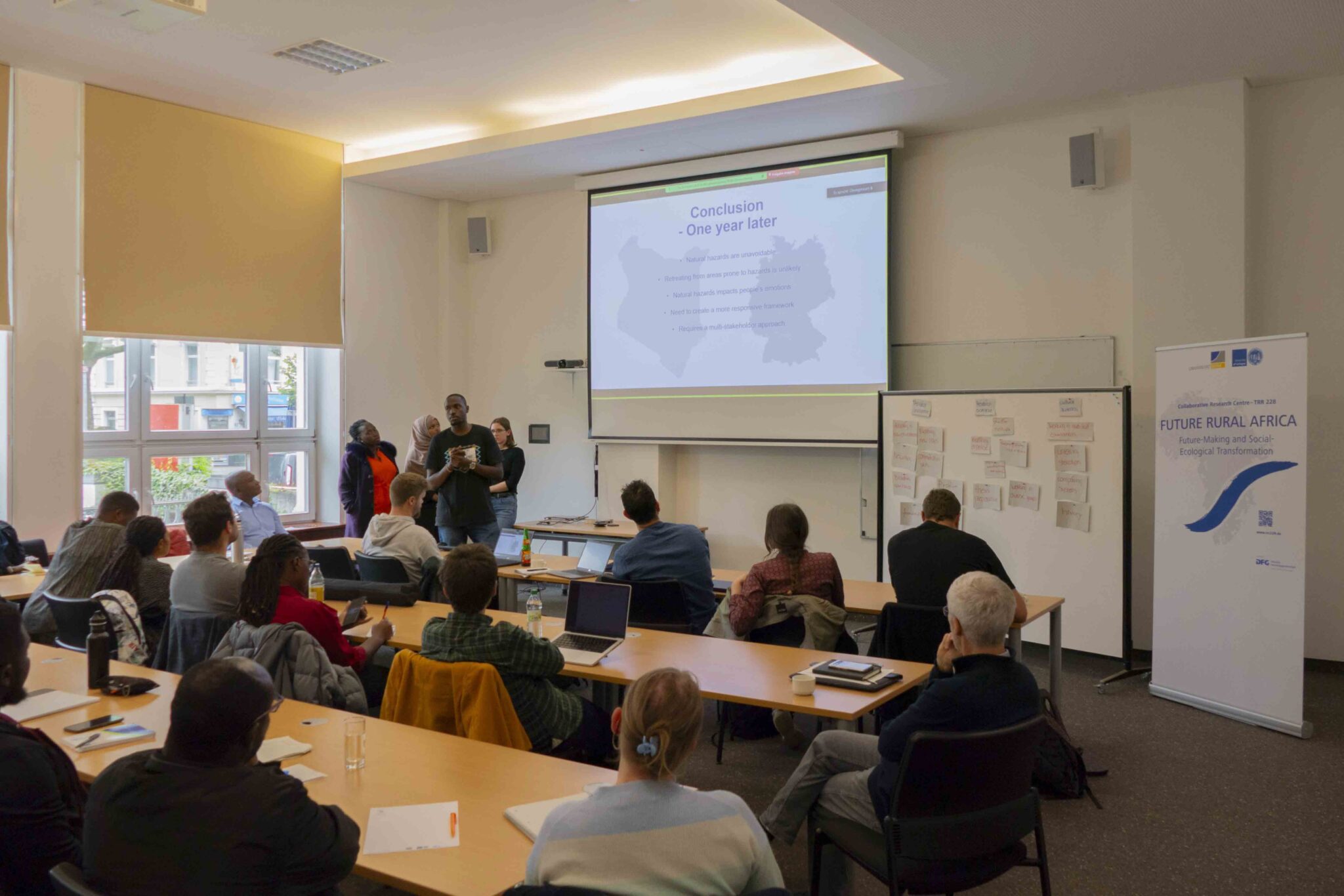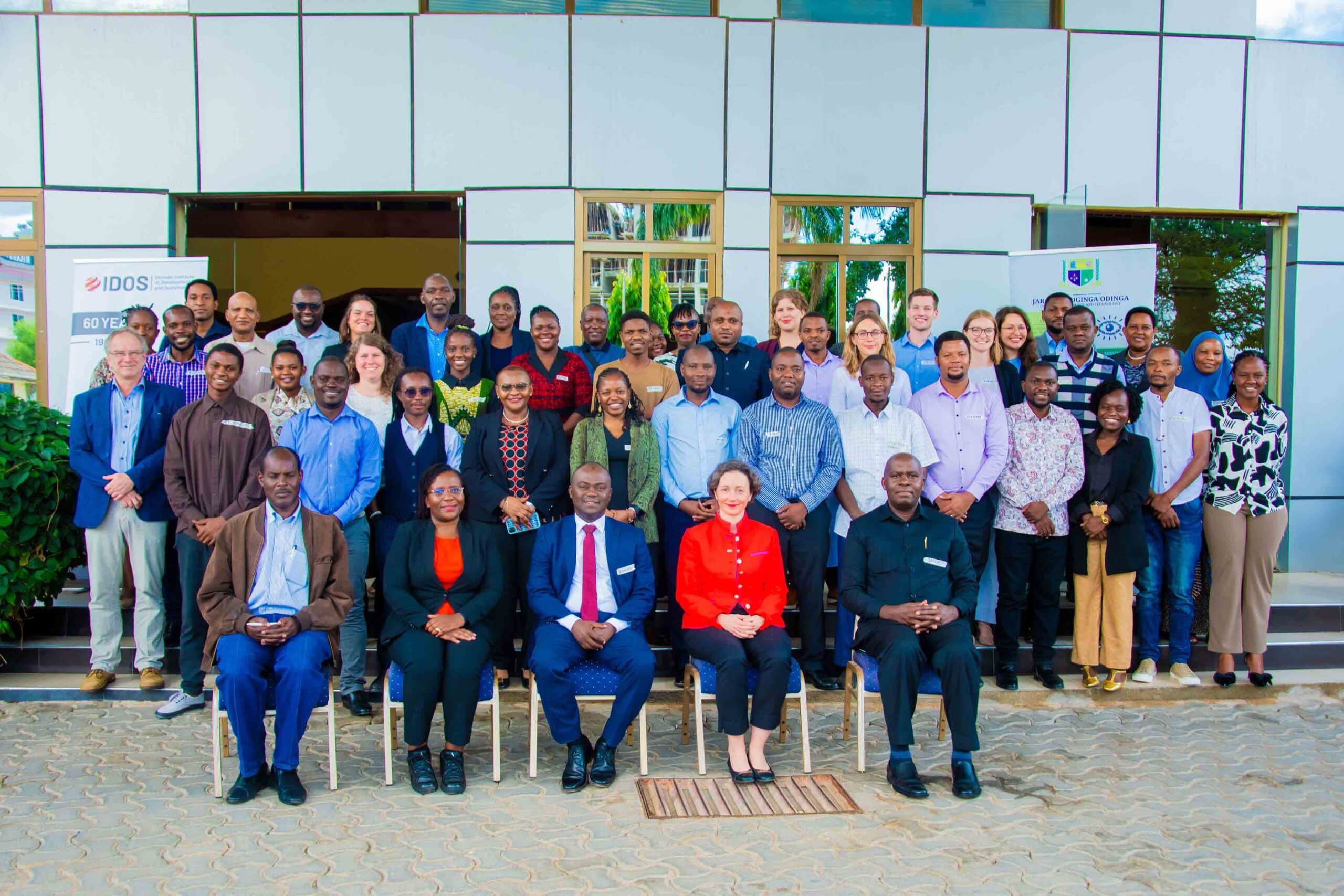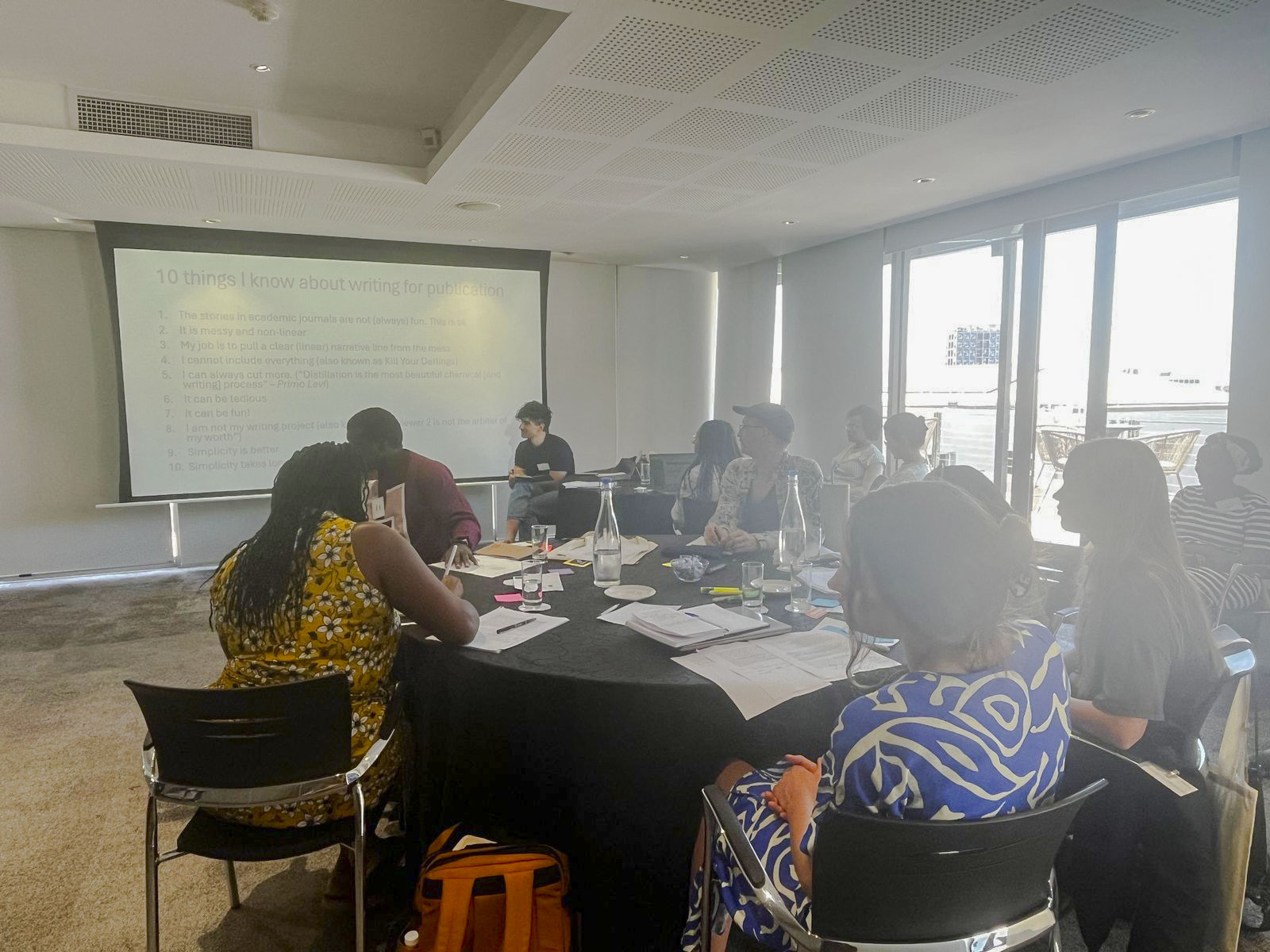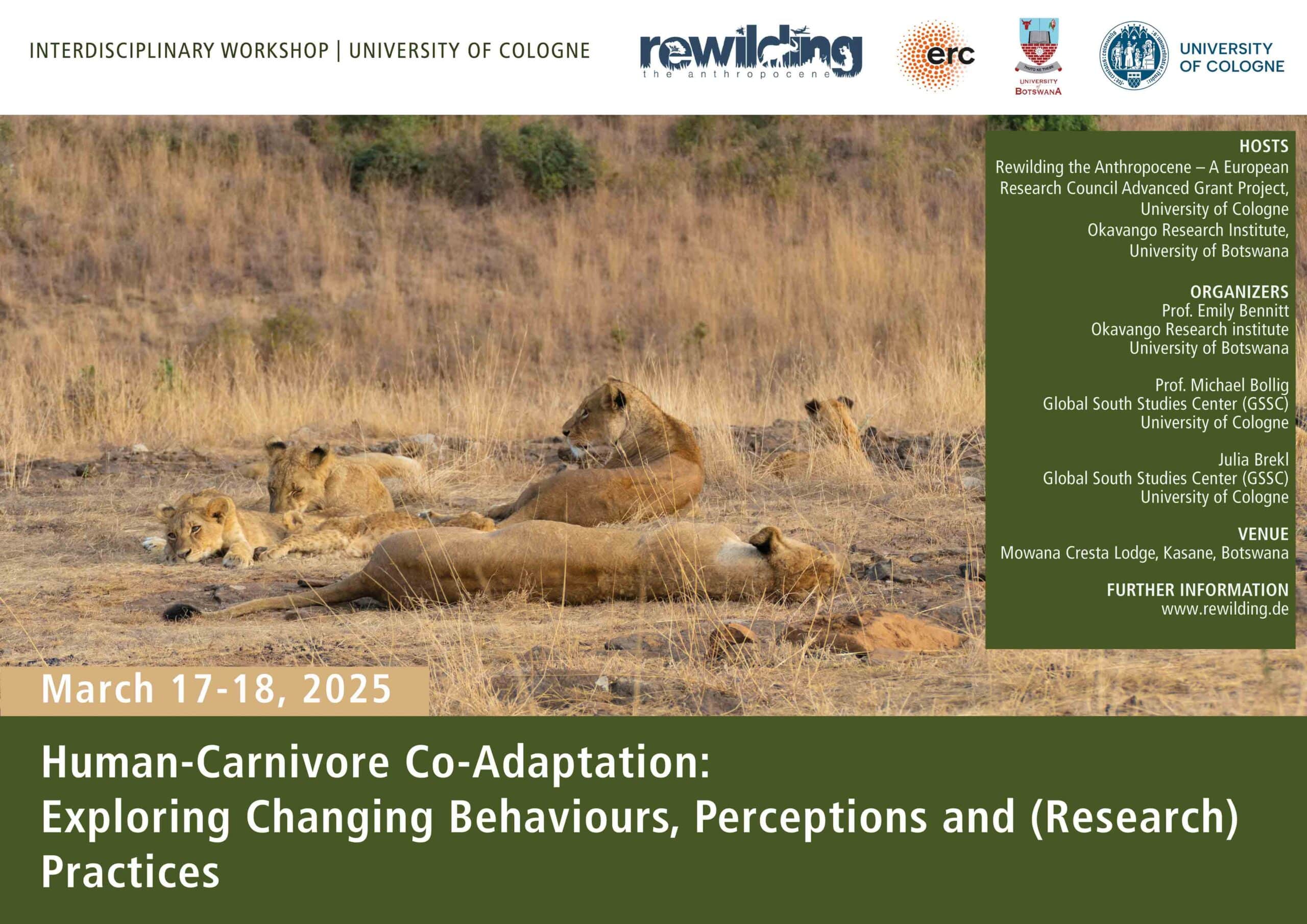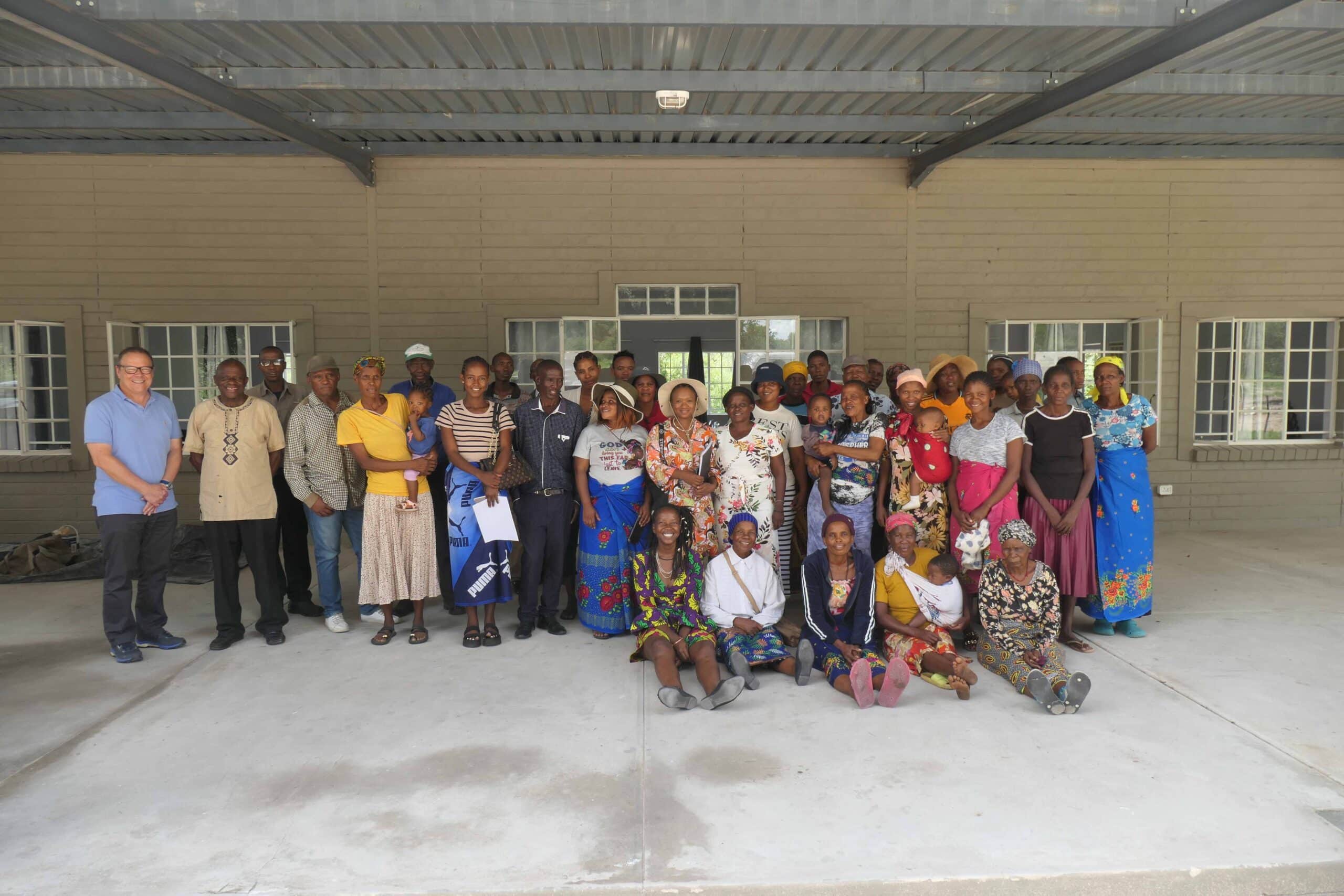“Normally, as researchers, when we go into the field, we go with assumptions. But this experience broke that stereotype for me, because we had to restructure our research questions after the first day of fieldwork. So you can’t predict what sort of data and information you are going to get in the field.”
Khadija, master’s student at Kenyatta University
From April to August 2023, the Collaborative Research Centre Future Rural Africa conducted an innovative seminar for master’s students from the University of Bonn, and various universities in Nairobi, titled M4/JM6. The seminar, taught by researchers Eric Kioko and Theo Aalders (CRC-TRR Project C03 Green Futures) aimed to provide students with practical research experience, familiarize them with working in an interdisciplinary setting and equip them with the skills necessary for a successful career in academia and beyond.
The seminar’s first phase, which was taught virtually, was dedicated to establishing a theoretical foundation for all students, before they were tasked with conducting their own research projects in a later stage of the process.
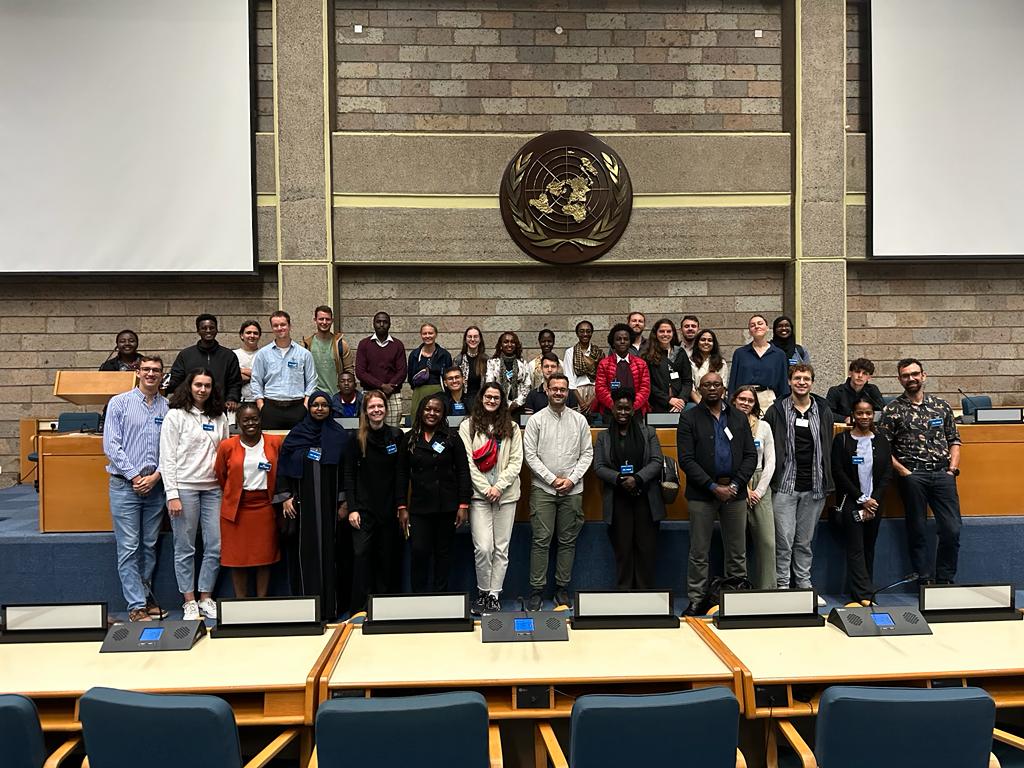
After completion of the first phase, the German participants traveled to Nairobi to meet their Kenyan counterparts face to face for the first time. There, the group was divided into six subgroups centered around one of six central themes:
- The “Postcolonial” City and Urban Planning in Nanyuki
- Natural Hazards & Adaptation
- Peace & Conflict
- Water Resource Management
- International Relations
- Local Politics
- Urban Agriculture
Guided by their selected topic, the participants had to develop group research projects, that they would conduct in Nanyuki, Kenya. Eric Njuguna Kamau, a student of International Relations and Diplomacy at Pioneer International University in Kenya opted for the “Peace and Conflict” theme. He and his group decided to research conflicts among the traders at the market in Nanyuki. Khadija, who is currently enrolled in the master’s programme “Conflict and Peace Studies” at The University of Nairobi joined Peter Chege Gathoni, who is a recent graduate of Kenyatta University’s Archaeology programme and opted for the theme of “The ‘Postcolonial’ City and Urban Planning in Nanyuki”. Their group investigated how locals understand the concept of “postcoloniality” and which features they associate with it in the context of the city of Nanyuki and Laikipia County. Frank, a recent graduate of the University of Nairobi’s Anthropology Bachelor’s programme and Zamzam, who is also a student of “Conflict and Peace Studies” at The University of Nairobi, opted for the research theme “Natural Hazards & Adaptation”.
Many of the participants highlighted how much they valued conducting their own research projects and gaining valuable practical insights. Reflecting on her experience, Khadija stated that “normally as researchers, when we go into the field, we go with assumptions. But this experience broke that stereotype for me, because we had to restructure our research questions after the first day of field work. So you can’t predict what sort of data and information you are going to get in the field. This is definitely something that I am going to use for my master’s thesis”. Peter maintains that he appreciated the practical insights gained, noting that “the experience gave me an insight into how field work is. Sometimes you have to change your ideas and develop a better approach.”
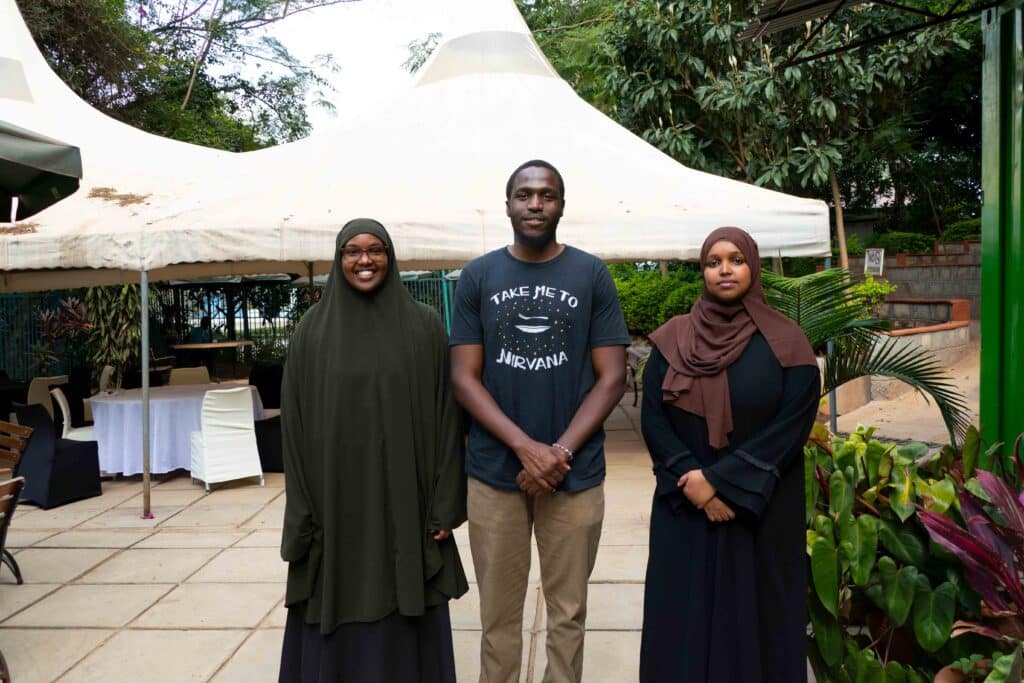
For Zamzam the seminar was transformative. “It gave me confidence when it comes to my master’s research project,” she shared. Reflecting on the interdisciplinary and collaborative aspect, she noted, “Carrying out research in a group really stood out. I really didn’t know how that would turn out. It was amazing. Getting to learn different insights from the different people in the group. Sometimes there could be challenges, because we have different ways of perceiving things. That can have an effect on your research. It can also make your work easier because you are working with different people. It really stood out to me.”
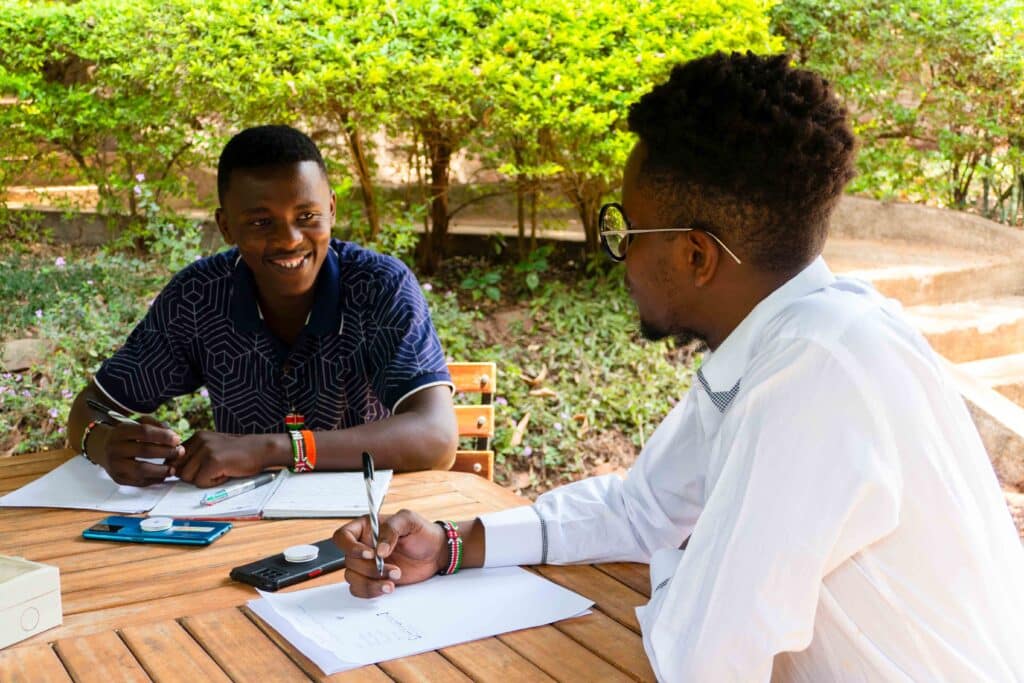
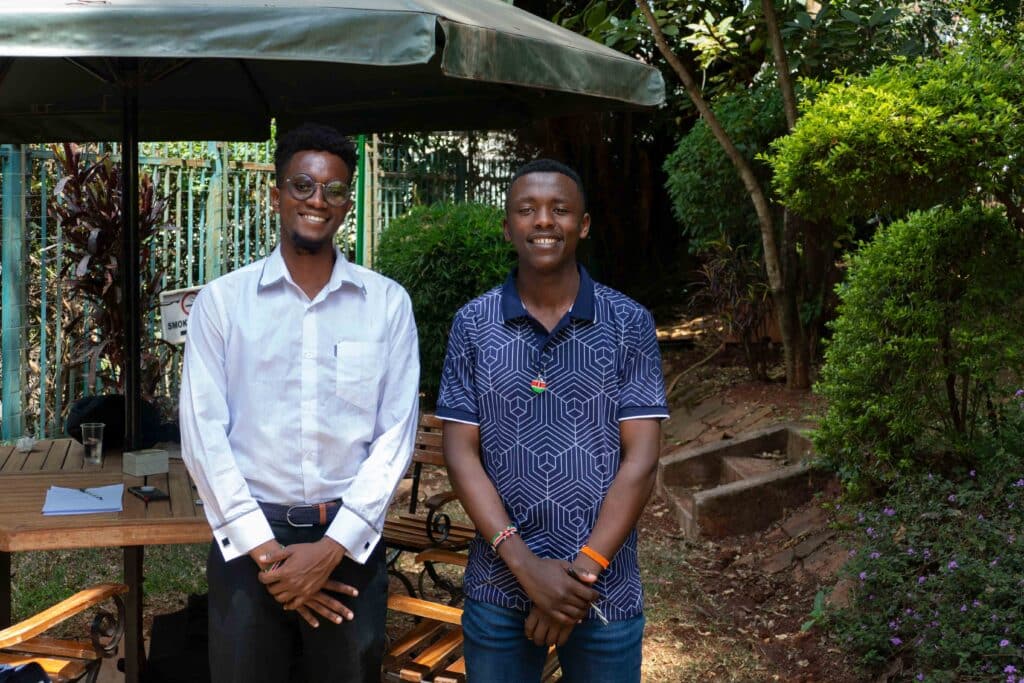
Peter also reflected on some difficulties that his group faced regarding sensitive research topics stating that “when we went to the field we realized our topic is a very sensitive one. At one time we were confronted by some extreme views on postcoloniality by a white resident in Nanyuki. We were shocked. I was shocked. We remained calm and let her lecture us. After that we left and talked to Theo Aalders. We realized that the topic is a sensitive one”.
In fact Theo Aalders and Eric Kioko, the Future Rural Africa researchers teaching the course and accompanying the participants during their field work had various mechanisms in place to deal with the challenges that their students encountered during their research; among those mechanisms was the so called “emotional hat”, a daily debrief session after a long day in the field, where all participants would come together and have the opportunity to share their thoughts, emotions, and grievances. Zamzam valued these sessions a lot, stating that they left her motivated to go out in the field the next day, after going through a rough day. Khadija added that previously she had never had a lecturer ask her about her emotions and how she was feeling, which she values a lot and found very helpful and motivating throughout the process.
Peter highlighted other innovative aspects of the seminar such as the numerous creative methods of presenting research findings that were discussed. “I learned that I can present my research through art. Through cartoons. And that way it can stand out. It really helped us to become innovative with our presentations. That is something that I, personally, will take home with me.”
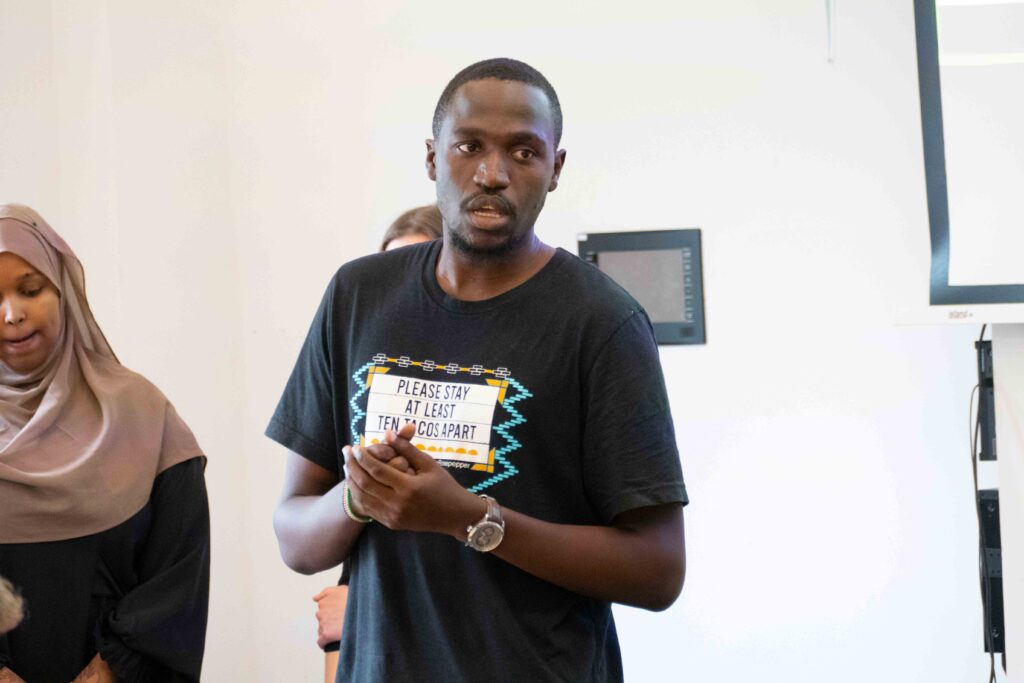
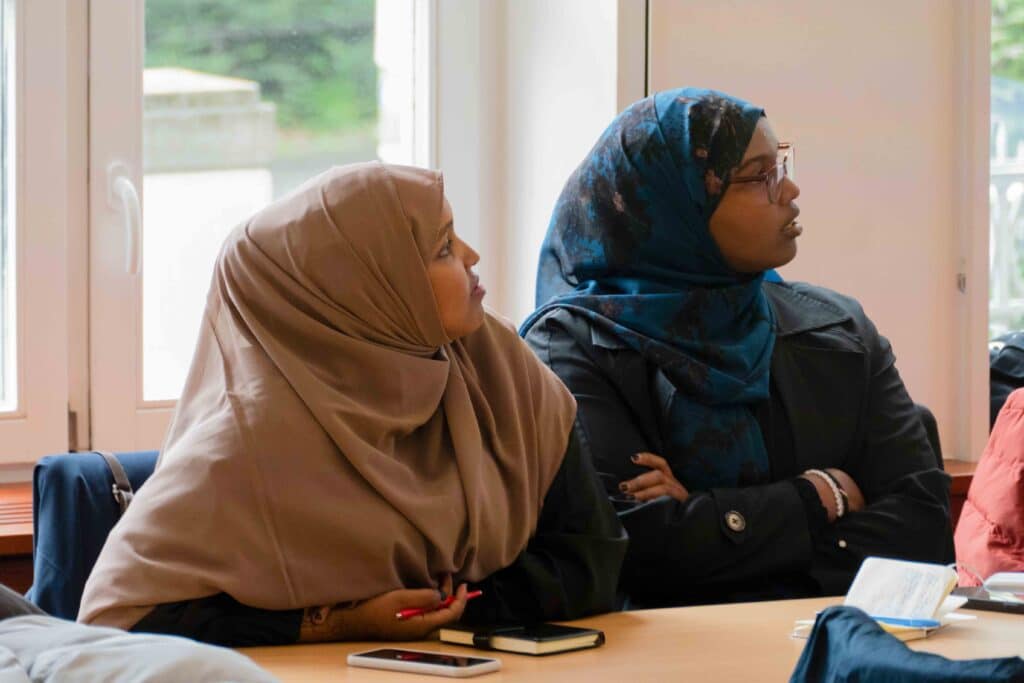
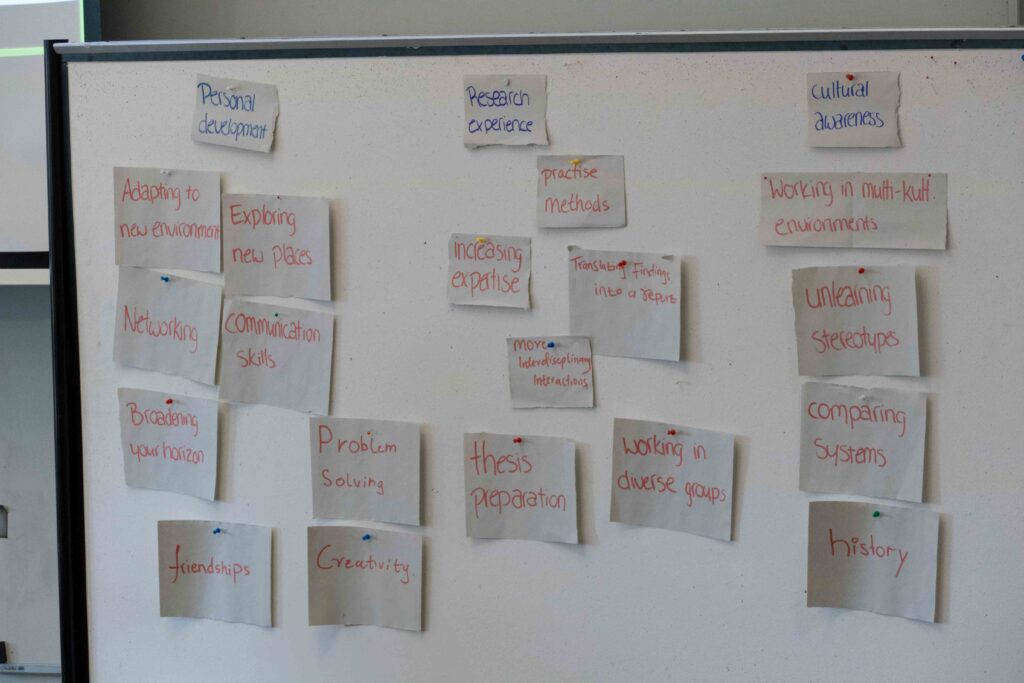
After finalizing their research in Kenya, the students from Bonn and Nairobi would soon meet again. In May 2024 the Kenyan participants of the course visited their German counterparts in Bonn where they presented their findings at the CRC-TRR Future Rural Africa’s project meeting, and reflected on the time spent together.
The innovative educational exchange not only enriched the participants’ academic skills but also fostered cross-cultural understanding and lasting professional connections. The friendships and networks persist even after the programme ended. Eric summarized his experience succinctly: “The experience was fun and enjoyable.”

